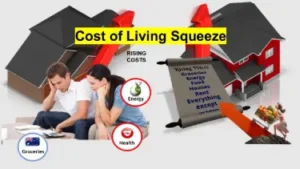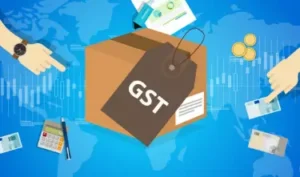Description: Hidden Costs of Living in Australia
Uncovering hidden costs of living in Australia. Explore the fees and taxes inflating your cost of living. Learn where your money is really going.
Introduction
 The rising cost of living in Australia is a significant concern for many households. While most Australians are aware of the common expenses like housing, food, and transportation, there are numerous hidden costs quietly draining their wallets. These unseen expenses, ranging from bank fees to service charges, often go unnoticed but collectively have a substantial impact on household budgets.
The rising cost of living in Australia is a significant concern for many households. While most Australians are aware of the common expenses like housing, food, and transportation, there are numerous hidden costs quietly draining their wallets. These unseen expenses, ranging from bank fees to service charges, often go unnoticed but collectively have a substantial impact on household budgets.
As these hidden costs accumulate, they worsen financial stress and erode buying power. Australians are left wondering why their money doesn’t stretch as far as it should, often without realizing that these stealthy expenses are a major culprit.
This article will uncover the hidden fees, taxes, and services that contribute to the high cost of living in Australia. By understanding where your money is going, you can take proactive steps to minimize these expenses and regain control of your financial health.
1. Overview of the Rising Cost of Living in Australia
Current Situation:
 Australia has seen a consistent rise in the cost of living over the past decade, driven by factors such as inflation, stagnating wages, and increasing prices for essential goods and services. According to the Australian Bureau of Statistics (ABS), inflation rates have outpaced wage growth, leading to a squeeze on household budgets.
Australia has seen a consistent rise in the cost of living over the past decade, driven by factors such as inflation, stagnating wages, and increasing prices for essential goods and services. According to the Australian Bureau of Statistics (ABS), inflation rates have outpaced wage growth, leading to a squeeze on household budgets.
Standard Living Expenses:
The most obvious contributors to the cost of living include rent or mortgage payments, groceries, and utilities. However, these are just the beginning. Beneath the surface, there are many less obvious costs that significantly affect your finances.
Importance of Understanding Hidden Costs:
It is crucial to understand these hidden costs because they can be managed or reduced with careful planning. Awareness is the first step toward financial empowerment.
2. Hidden Fees: The Silent Wallet Drainers
Bank Fees
Common Banking Fees:
Banking fees are a prime example of hidden costs that can erode your savings over time. Australians pay billions annually in bank fees, including ATM withdrawal fees, account maintenance fees, and overdraft penalties. These small charges often go unnoticed but can add up to significant amounts annually.
Impact on Households:
For instance, a typical household might incur $20 monthly in various bank fees, equating to $240 per year. Over a decade, this amounts to $2,400, a significant sum that could have been saved or invested.
How to Avoid These Fees:
To minimize these fees, consider switching to a bank that offers fee-free accounts, avoid using ATMs outside your bank’s network, and keep track of your account balance to prevent overdrafts.
Telecommunication Charges
Hidden Costs in Phone and Internet Plans:
Telecommunication companies often advertise attractive rates, but these can be misleading. Hidden charges for exceeding data limits, international calls, or even simple service fees can quickly inflate your monthly bill.
Consumer Impact:
For example, a $60 monthly phone plan could end up costing $75 or more due to excess data usage or added service fees, resulting in an extra $180 per year.
Tips to Reduce Telecom Costs:
To avoid these hidden costs, thoroughly review your plan’s terms and conditions, watch your usage, and consider switching to a more transparent provider.
Insurance Premiums
Car, Health, and Home Insurance Costs:
Insurance is a necessary expense, but hidden costs within your premiums can catch you off guard. Factors like administrative fees, charges for optional extras, and penalties for monthly payments instead of annual payments can inflate your costs.
Hidden Fees and Premium Increases:
For example, many Australians are unaware that paying their insurance premium monthly instead of annually can cost an extra 5-10%. Over time, this can add up to hundreds of dollars.
How to Save on Insurance:
Review your policy annually, opt for higher deductibles if possible, and always compare quotes from different insurers to ensure you’re getting the best deal.
Utility Bill Surprises
Unexpected Utility Charges:
Utility bills often come with hidden fees such as overdue payment fees, connection or disconnection charges, and service fees. These charges can add up, especially if you’re not careful about paying on time or switching providers often.
Case Example:
Consider a typical electricity bill: an overdue payment fee of $15 might seem small, but if you incur it four times a year, that’s an added $60. Over several years, these charges accumulate significantly.
Strategies to Manage Utility Costs:
To avoid these surprises, set up automatic payments, regularly review your bills for accuracy, and consider switching to providers with better customer service and fewer fees.
3. Taxes: Beyond Income Tax
Stamp Duty and Property-Related Taxes
Understanding Stamp Duty:
Stamp duty is a significant cost for home buyers in Australia, often amounting to tens of thousands of dollars. This tax, imposed by state governments, is based on the property’s value, and can be a major financial burden.
Impact on Home Buyers:
For example, on a $500,000 property, the stamp duty could be around $20,000, a large amount that needs to be factored into your budget.
Navigating Property Taxes:
While stamp duty is unavoidable, first-time homebuyers may qualify for exemptions or concessions. Additionally, it’s crucial to budget for other property-related taxes, such as land tax and council rates.
Goods and Services Tax (GST)
 GST on Everyday Purchases:
GST on Everyday Purchases:
The Goods and Services Tax (GST) is a 10% tax on most goods and services in Australia. While this is a well-known tax, its cumulative effect on your cost of living is often underestimated.
GST’s Disproportionate Impact:
GST is a consumption tax, meaning it disproportionately affects low- and middle-income households who spend a larger part of their income on taxable goods and services.
Managing GST Costs:
To reduce the impact of GST, consider buying second-hand goods (which are often GST-exempt) or take advantage of tax-free shopping schemes when available.
Superannuation and Retirement Costs
Hidden Superannuation Fees:
Superannuation is essential for retirement savings, but many Australians are unaware of the hidden fees within their super funds. These can include administration fees, investment fees, and even fees for accessing certain services.
Long-Term Impact on Savings:
Even seemingly small fees, like a 1% investment fee, can significantly reduce your retirement savings over time. For example, over 30 years, a 1% fee on a $100,000 super balance could cost you more than $30,000.
Optimizing Your Super:
To minimize these costs, regularly review your super fund’s performance and fees, combine multiple super accounts, and consider switching to a low-fee fund.
4. Service Costs: The Unseen Impact on Your Budget
Healthcare Expenses
Out-of-Pocket Medical Costs:
Australia’s healthcare system is robust, but out-of-pocket expenses can be large. While Medicare covers many services, gaps in coverage can lead to significant costs for specialists, pharmaceuticals, and elective procedures.
Unexpected Medical Bills:
For example, visiting a specialist not fully covered by Medicare can result in a bill of $200 or more. Additionally, the cost of pharmaceuticals not covered by the Pharmaceutical Benefits Scheme (PBS) can add hundreds to your annual healthcare costs.
Reducing Healthcare Costs:
To manage healthcare expenses, consider taking out private health insurance, staying within the Medicare system for most treatments, and using generic medications when possible.
Childcare and Education
Rising Childcare Costs:
Childcare is a significant expense for many Australian families, with costs continuing to rise. Beyond the basic fees, hidden costs such as late pickup fees, extracurricular activities, and supplies can add hundreds of dollars annually.
Education-Related Expenses:
Schooling comes with its own set of hidden costs, including uniforms, textbooks, and school excursions. These expenses can quickly add up, particularly for families with multiple children.
Financial Planning for Education:
To manage these costs, budget for education expenses at the beginning of the school year, take advantage of government rebates, and explore community or second-hand options for supplies and uniforms.
Transportation
Public Transport and Hidden Fees:
Public transport in Australia is generally affordable, but hidden costs such as fare increases, service charges for certain routes, and fees for lost cards can add to your overall transportation expenses.
Cost of Car Ownership:
Car ownership also comes with numerous hidden costs, including registration fees, tolls, and maintenance. For instance, the annual registration fee for a car can be over $700, and tolls can add hundreds more, especially for daily commuters.
Tips to Save on Transportation:
To reduce transportation costs, consider using public transport whenever possible, carpooling, or exploring car-sharing services. Additionally, regularly maintaining your vehicle can prevent costly repairs.
5. Case Studies and Personal Stories
Real-Life Examples:
Consider the story of Sarah, a single mother in Sydney who found herself overwhelmed by hidden costs. Despite budgeting carefully for rent, groceries, and utilities, Sarah was hit with unexpected bank fees, increased childcare costs, and higher-than-expected medical bills. These hidden expenses left her struggling to make ends meet.
Data-Driven Insights:
According to a study by the Reserve Bank of Australia (RBA), the average household spends an extra $1,200 annually on hidden fees and charges. This data underscores the significance of these costs and the need for greater awareness.
Personal Reflection:
Reflect on your own experience with hidden costs. Have you noticed unexpected charges on your bills? Sharing your story can help others recognize and address these expenses.
6. Coping Strategies and Solutions
Financial Literacy
Understanding Hidden Costs:
Financial literacy is key to managing hidden costs effectively. By understanding where these expenses come from, you can take steps to reduce or cut them.
Practical Tips:
Start by reviewing all your bills and statements carefully. Look for recurring fees that you might not have noticed before and question any charges that seem unfamiliar.
Practical Tips
Negotiating Fees:
Many hidden costs are negotiable. For example, you can often negotiate bank fees, insurance premiums, and even utility charges. Don’t be afraid to ask for a better deal.
Switching Providers:
If your current provider is charging excessive fees, consider switching to a more competitive choice. This applies to everything from banks to utility companies to insurance providers.
Using Government Resources:
The Australian government offers various tools and resources to help you compare costs and find the best deals. Websites like Money Smart provide calculators and guides for managing your finances.
Policy Recommendations
Greater Transparency:
There is a growing need for greater transparency in how fees are presented to consumers. Governments and regulatory bodies should enforce stricter disclosure requirements, ensuring that Australians understand the full cost of services.
Consumer Protection:
Advocating for stronger consumer protection laws can help safeguard Australians from predatory fees and charges. Supporting initiatives that promote financial education and literacy is also crucial.
7. Conclusion
Summary:
The hidden costs of living in Australia are more than just an inconvenience; they are a significant drain on household budgets. From bank fees to property taxes, these expenses add up, making it harder for Australians to achieve financial stability.
Call to Action:
By becoming aware of these hidden costs and taking proactive steps to manage them, you can reduce their impact on your wallet. Review your expenses, negotiate fees, and stay informed to protect your financial health.
Question for Readers:
How have hidden fees and costs affected your budget? Share your experiences and tips in the comments below.
References
Boost Mobile: https://boost.com.au/pages/prepaid-plans
AldiMobile: https://www.aldimobile.com.au/collections/mobile-plans
Money Smart the Australian Securities and Investments Commission (ASIC): https://moneysmart.gov.au/
Australian Tax Office: https://www.ato.gov.au/individuals-and-families
Feeling overwhelmed by a tight budget and growing costs?: https://www.abc.net.au/news/2023-07-02/overwhelmed-tight-budget-finances-households-cost-living-tips/102511348
Talk Money: https://talkmoney.org.au/
Free Budget Templates: https://create.microsoft.com/en-us/templates/budgets


NOTHING IN LIFE IS FREE. IS THE CATCH CRY OF LANDLORDS’
Land lording is a monopoly.
How do landlords make a profit?” “By lording land.”
Quite literally, a landlord monopolizes a piece of property, then preys on the desperation of others to extract rent. They’re exactly like ticket scalpers who buy more tickets than they need, then hoard them to drive up the price. Landlords are just house scalpers who contribute no value to the economy: “A propertied class is freed from the labour of production through its ability to maintain itself out of a surplus extracted from the primary producers, whether by compulsion or by persuasion or (as in most cases) by a mixture of the two.”
Consider this horrible Evil Landlords of South Australia who aims to devour $1 billion in property in order to “provide” 4,000 single-family homes to the working class. “Provide?” Land-lorders do not provide goods or a service.
They hold a property hostage. They literally lord a house over others.
In fact, I chatted with a landlord this week who informed me of his plans to buy the multi-acre field beside his mansion and tennis court “to stop anyone from building on it.” In other words, the huge rents his tenants are paying to stay sheltered are being used to monopolize more land to keep others from having shelter.
Landlords lack the creativity, drive, risk, time, and/or skill to build real, productive businesses that contribute goods and services to the world, so they choose to lord land over others instead.
Land-lording is lazy, and it is a gross misallocation of capital. It is the textbook definition of rent-seeking: “Rent-seeking is the effort to increase one’s share of existing wealth without creating new wealth. Rent-seeking results in reduced economic efficiency through misallocation of resources, reduced wealth creation, lost government revenue, heightened income inequality, and potential national decline. “In other words, land-lording is a form of communal theft.”
In other words, the land-lording class will squeeze from the productive class as much wealth as it can realistically wring out before the rent-serf dies.
“The landlords operate a certain kind of monopoly against the tenants. The demand for their commodity, site and soil, can go on expanding indefinitely; but there is only a given, limited amount of their commodity…. The bargain struck between landlord and tenant is always advantageous to the former in the greatest possible degree.”
Landlords own all the rental homes, and since rent-serfs cannot afford to purchase shelter in a privatized economy — how could you possibly save up a down payment while you’re paying someone else’s mortgage? — they have no choice but to pay maximal usury to a landlord. But why do landlords have the “right” to charge what they do? The answer is simple the majority of Politicians and Lawyers collect rent it does not matter what political party is in Power. They will continue to pass legislation that forces the price of a shelter upwards. Because they own all the houses.
Because they have a capital (or usually credit) advantage over rent-serfs. Real estate investors can always afford to outbid would-be homeowners. Therefore, prices rise. Therefore, more productive contributors must become rent-serfs and compete for fewer rental properties. Rent costs rise. Investment values rise. The whole inequality structure spins higher and higher until the working class is crushed. imagine what it would be like if the majority of politician’s were pedophiles’. the fact is Landlords control the world; every price rise is a result of a business having to pass on the extra rent they pay to a landlord. copy and share.
Hi Frank,
Thank you for your thoughtful comment. There is much room for improvement, but I think one of that main problems in fixing any issue is the serious lack of political will. I do not believe our key politicians are working for the people, but for corporations and their political donors.